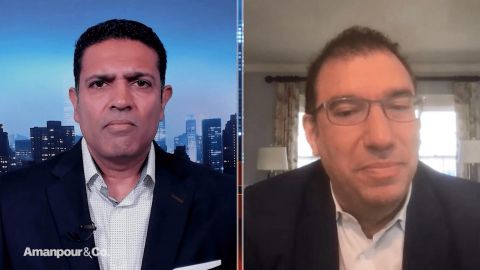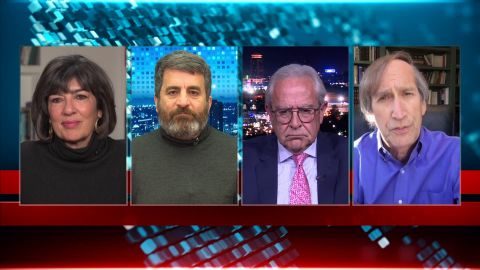Read Transcript EXPAND
AARON DAVID MILLER, FORMER U.S. DEPUTY SPECIAL MIDDLE EAST COORDINATOR: I mean, the humanity with respect to the Israeli-Palestinian conflict, perhaps more than any of the conflicts between Israel and the Arab states, I think, is a critically important consideration. And I think Dror was onto something. Of course, it’s national interests, ultimately, that will determine whether or not an agreement is made. But men and women who factor in that conflict, clearly — and the role of personality — is critically important. As far as the American involvement, I think, frankly, we got too close to both parties. I think we began to see the world the way we wanted it to be, rather than the way it was. In a very controversial provocative line in the film, I quoted Henry Kissinger. In his memoirs, he referred to the United States — or at least his refusal to become what he called Israel’s lawyer. In my own judgment, I realized all the arguments as to why we needed to adopt a position, particularly because Israel controlled the territory. But I really do believe, with respect to the human factor, that we needed — we should have been a lawyer for both sides. Our client needed to be — needed to be the agreement. And we had to be careful not to lawyer for one side or the other. I think we did, in fact, get too close to the Israelis. That may well have been a function of the fact that they control the territory and our sensibility that we needed, certainly on the security side, to take their requirements into account. But, with the exception of Gamal, and Rob Malley, who is not here with us today, I think that — and perhaps Dan Kurtzer, also in the film — we really needed, I think, to better understand, what were the needs and requirements of the Palestinian side? Gamal points out repeatedly that what was important to Palestinians above all was respect. We tried, but I’m not sure we delivered.
AMANPOUR: Well, let me ask Gamal. And, actually, that’s why I wanted to have Gamal on the program today, because you are one of the rare Arab negotiators in — or Arab American negotiators. And you were sort of given the job, so to speak, of keeping the Palestinians on side and being the interface, mostly with them. So, do you think that the human factor was somewhat missing? Do you agree, because what David Aaron’s just said is pretty amazing, that he agrees that America was too much Israel’s lawyer. Did that come across to you as well?
GAMAL HELAL, FORMER SENIOR POLICY ADVISER TO U.S. PEACE NEGOTIATING TEAMS: No, I might disagree with my good friend Aaron Miller on this one. The issue is that I looked at the human factor at two different levels. One is basically the interrelationship between the negotiators and the leaders and all of that.
About This Episode EXPAND
Micheál Martin; Dror Moreh; Gamal Helal; Aaron David Miller; Andy Slavitt
LEARN MORE


